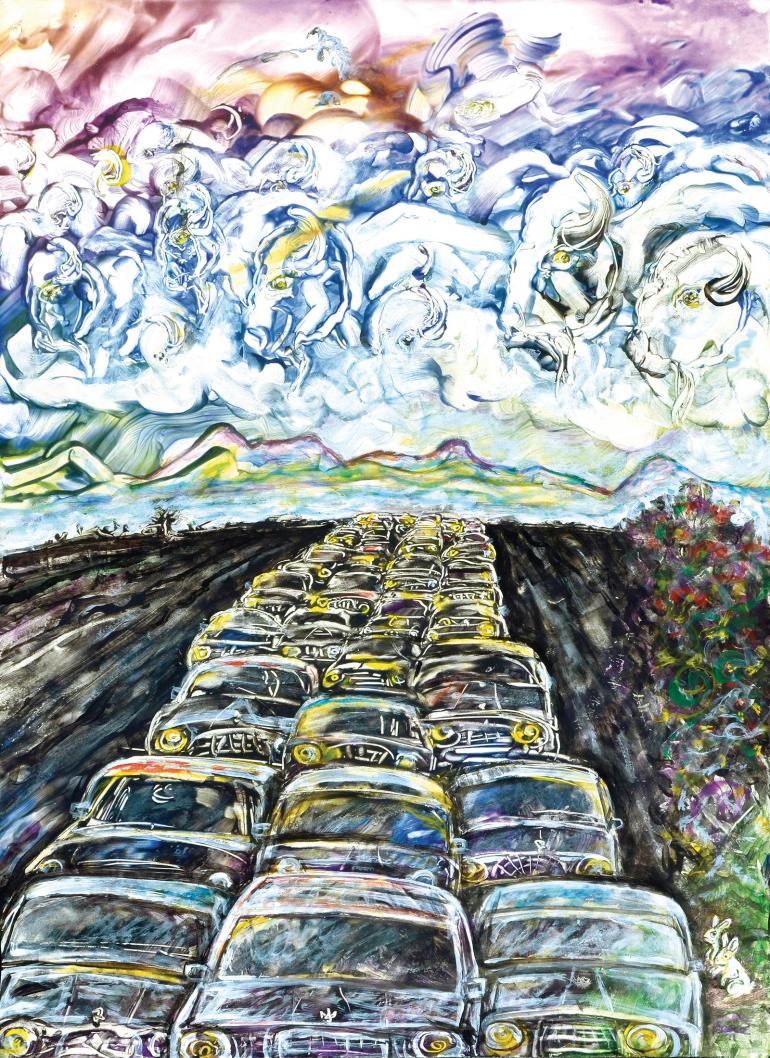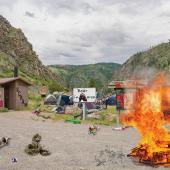Home Invaders
The over-housed are running and ruining our town.
Open your eyes: Bozeman is frequented by a rootless upper class that is perpetually on the move, crashing only momentarily at their Bozeman properties while on their way to multiple other properties held in multiple other locations across our country and world.
These elites alter our city physically, economically, and culturally—all to the detriment of local people, whose cost of living increases as their quality of life declines. More Bozeman citizens than ever are wise to the footloose elites’ negative transformation of our place—yet, when locals present their grievances to the city government, those concerns fall on deaf ears.
Not only has the concierge class earned the respect of the Bozeman city commission, but the commission seems duty-bound to it.
It seems clear that the commission has sided with the rootless elite—or more accurately, with their representatives, the developers and financiers and investor class, the greasy dealers who find ways to facilitate, to promote, and to extract profit from the wanderings of the shifty elite class.
It is to this sub-class, composed of wannabes and wheeler-dealers, that the commission turns their attention—to the “concierge class.” Concierges work for and build for elites; as highfalutin’ servants, concierges satisfy elite whims by predicting and guiding them; they give soft landings to elite rootlessness with turn-key, pass-through vacation properties in Bozeman and other locales that provide momentary glamorous backdrops for their maundering ways.
Not only has the concierge class earned the respect of the Bozeman city commission, but the commission seems duty-bound to it, perhaps because concierges represent the successful class, the “winners” in the struggle for survival. Yet this obeisance is not restricted to the Bozeman city commission. The elites influence the whole of society. When the elite class needs it, a new law is drafted; on the other hand, some old law, an annoyance to wealth-generation, is repealed to the benefit but not to the gratitude of the power-elite. Old things, things of humble origin, non-transactional things, things stuck in the ground, people stuck in their ways, the very notion of groundedness—all are upended, put into motion for motion’s sake and thrust into errors of no one’s making and no one’s concern.
This is the modern world. A homeless world. Our world, and our town.
Under the crushing power of concierge bulldozers, landmark structures are pulverized into amnesia.
While the elite move about, obligating others to their service, the accommodations constructed for their ephemeral appearances are in some places sunk into the earth, irremovably, and their influence is inscribed into the local zoning code and gashed into the very nervous systems of longtime local people who, while watching the senseless misuse of their beloved home ground, struggle to keep their own senses intact.
Under the crushing power of concierge bulldozers, landmark structures are pulverized into amnesia. Aging kit homes, eccentrically re-modeled worker houses, and tiny cottages are flattened, emptying our place of its past, refashioning old neighborhoods with contemporary mid-rise residential “fulfillment centers” that echo the dumbed-down designs of a thousand other buildings just like them rising up from sea to shining sea. Whole neighborhoods once worthy of love are repurposed into forgettable franchise realms made of vacuous forms one seemingly could put one’s hand through without resistance.
I don’t mean to blame the city commission for elites’ reckless and multi-dimensional endangerment of group life, only for their unconscious (I hope) complicity in it. It isn’t too much to ask the city commission to consider a possibility: namely, that the reason more and more city residents are bitter, angry, and dejected about the direction of city life has everything to do with the predominant influence of an elite class in our city—and concierges in City Hall.
Former Bozeman mayor Steve Kirchhoff is now an instructor in MSU’s English Department. A version of this essay was originally published in Bozeman Magazine.
Editor's note: Interested in how Bozeman is changing, for better of for worse? Then read this feature-length article by local psychotherapist Timothy Tate.













